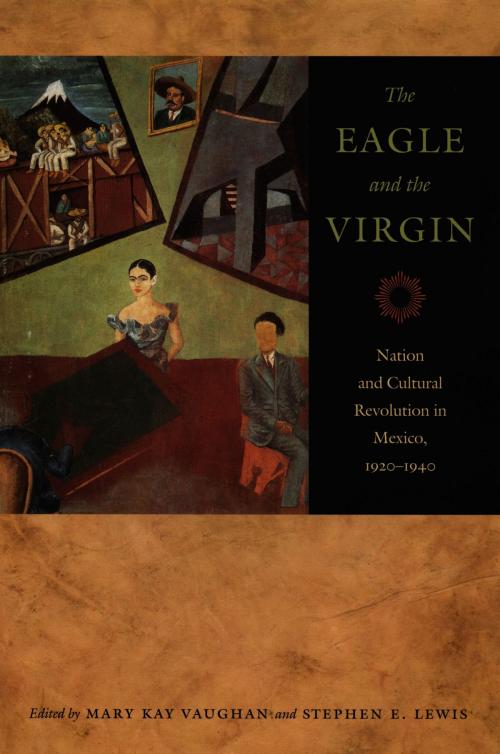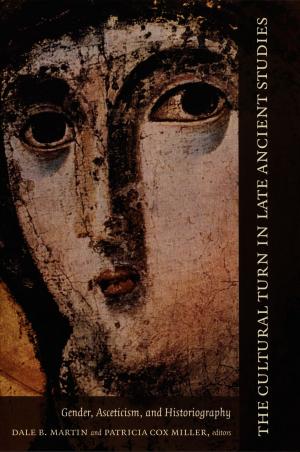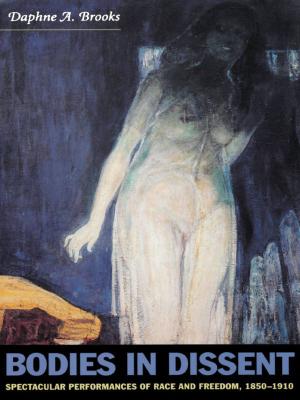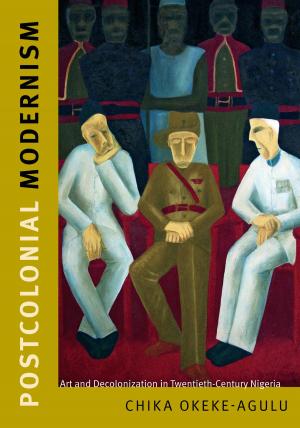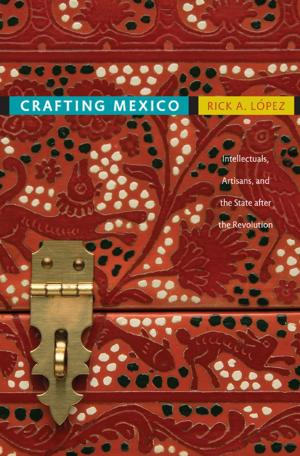The Eagle and the Virgin
Nation and Cultural Revolution in Mexico, 1920–1940
Nonfiction, History, Americas, Mexico| Author: | Rick A. Lopez, Desmond Rochfort | ISBN: | 9780822387527 |
| Publisher: | Duke University Press | Publication: | March 13, 2006 |
| Imprint: | Duke University Press Books | Language: | English |
| Author: | Rick A. Lopez, Desmond Rochfort |
| ISBN: | 9780822387527 |
| Publisher: | Duke University Press |
| Publication: | March 13, 2006 |
| Imprint: | Duke University Press Books |
| Language: | English |
When the fighting of the Mexican Revolution died down in 1920, the national government faced the daunting task of building a cohesive nation. It had to establish control over a disparate and needy population and prepare the country for global economic competition. As part of this effort, the government enlisted the energy of artists and intellectuals in cultivating a distinctly Mexican identity. It devised a project for the incorporation of indigenous peoples and oversaw a vast, innovative program in the arts. The Eagle and the Virgin examines the massive nation-building project Mexico undertook between 1920 and 1940.
Contributors explore the nation-building efforts of the government, artists, entrepreneurs, and social movements; their contradictory, often conflicting intersection; and their inevitably transnational nature. Scholars of political and social history, communications, and art history describe the creation of national symbols, myths, histories, and heroes to inspire patriotism and transform workers and peasants into efficient, productive, gendered subjects. They analyze the aesthetics of nation building made visible in murals, music, and architecture; investigate state projects to promote health, anticlericalism, and education; and consider the role of mass communications, such as cinema and radio, and the impact of road building. They discuss how national identity was forged among social groups, specifically political Catholics, industrial workers, middle-class women, and indigenous communities. Most important, the volume weighs in on debates about the tension between the eagle (the modernizing secular state) and the Virgin of Guadalupe (the Catholic defense of faith and morality). It argues that despite bitter, violent conflict, the symbolic repertoire created to promote national identity and memory making eventually proved capacious enough to allow the eagle and the virgin to coexist peacefully.
Contributors. Adrian Bantjes, Katherine Bliss, María Teresa Fernández, Joy Elizabeth Hayes, Joanne Hershfield, Stephen E. Lewis, Claudio Lomnitz, Rick A. López, Sarah M. Lowe, Jean Meyer, James Oles, Patrice Olsen, Desmond Rochfort, Michael Snodgrass, Mary Kay Vaughan, Marco Velázquez, Wendy Waters, Adriana Zavala
When the fighting of the Mexican Revolution died down in 1920, the national government faced the daunting task of building a cohesive nation. It had to establish control over a disparate and needy population and prepare the country for global economic competition. As part of this effort, the government enlisted the energy of artists and intellectuals in cultivating a distinctly Mexican identity. It devised a project for the incorporation of indigenous peoples and oversaw a vast, innovative program in the arts. The Eagle and the Virgin examines the massive nation-building project Mexico undertook between 1920 and 1940.
Contributors explore the nation-building efforts of the government, artists, entrepreneurs, and social movements; their contradictory, often conflicting intersection; and their inevitably transnational nature. Scholars of political and social history, communications, and art history describe the creation of national symbols, myths, histories, and heroes to inspire patriotism and transform workers and peasants into efficient, productive, gendered subjects. They analyze the aesthetics of nation building made visible in murals, music, and architecture; investigate state projects to promote health, anticlericalism, and education; and consider the role of mass communications, such as cinema and radio, and the impact of road building. They discuss how national identity was forged among social groups, specifically political Catholics, industrial workers, middle-class women, and indigenous communities. Most important, the volume weighs in on debates about the tension between the eagle (the modernizing secular state) and the Virgin of Guadalupe (the Catholic defense of faith and morality). It argues that despite bitter, violent conflict, the symbolic repertoire created to promote national identity and memory making eventually proved capacious enough to allow the eagle and the virgin to coexist peacefully.
Contributors. Adrian Bantjes, Katherine Bliss, María Teresa Fernández, Joy Elizabeth Hayes, Joanne Hershfield, Stephen E. Lewis, Claudio Lomnitz, Rick A. López, Sarah M. Lowe, Jean Meyer, James Oles, Patrice Olsen, Desmond Rochfort, Michael Snodgrass, Mary Kay Vaughan, Marco Velázquez, Wendy Waters, Adriana Zavala
